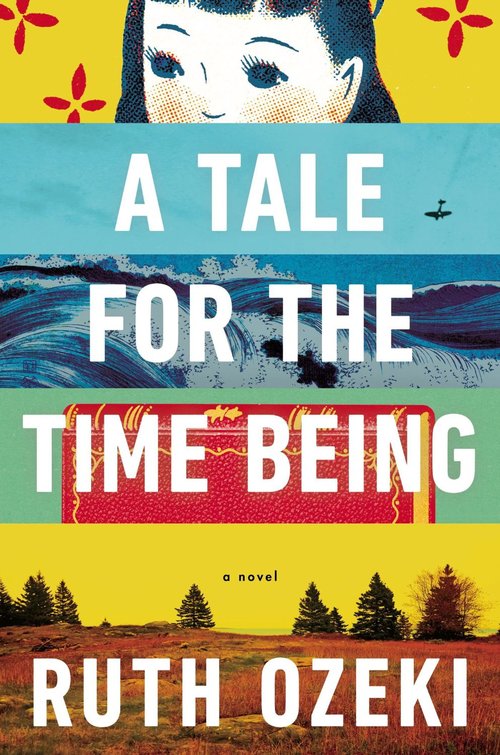Are “readable” and “plot-driven” now backhanded compliments for books?
At The Star, Bert Archer argues that there’s nothing wrong with “readable” books (via):
You could make snide comparisons to see-ability in art and hear-ability in music, but I think the best analogy might be livability and architecture. Can a house be excellent if it is not also livable? If you find yourself stumbling on the stairs because they’re not big enough for your feet, or if you get wet when it rains because there are cleverly carved holes in the roof, I would say you have a legitimate complaint against the architect. The lines may be lovely, the shapes and materials put together in heretofore unimagined combinations, but a house that you can’t properly live in is an architectural failure. Livability (and workability and whatever other abilities architects design for) is the highest form of architectural excellence. Designing a building that’s not fit for use is absurd.
And yet there’s a consortium of people, headed by literary agent Andrew Kidd and supported by a host of literary types, who last week announced they were putting together a prize, to be known as The Literature Prize, for “writers who aspire to something finer.” […]
One anonymous publisher was quoted in the Guardian saying, “We need icy indifference to public opinion from our Booker judges, and we expect at least a few impenetrable, dark, tricky novels on the shortlist. That way it’s all the more surprising when a Life of Pi emerges.”
Likewise, “plot-driven” tends to be thrown at novels somewhat disparagingly—as if having a plot makes the book somewhat less literary. Consider, for instance, this essay in The Guardian by John Lucas, wondering if “the market’s stress on keeping stories moving means we’re in danger of losing some truer fictions”:
I often wonder if relentless focus on plot is edging something of value out of our literary culture. Creative writing students are frequently told to “show not tell”, to “get into the scene early”, and make sure their characters are never without motivation. All great advice, except it doesn’t really reflect the way life is. Would-be novelists must submit three chapters and a synopsis of their manuscripts to the literary agents or publishers they approach: if these fail to “hook” early on they will almost certainly be rejected. So what would happen to Nausea, The Unnamable, In Search of Lost Time, or, God forbid, Finnegans Wake? I recently attended a talk where a leading London literary agent stated that, in his opinion, it is highly unlikely that Kafka would get published as a first-time writer today. Of course there’s no way this can be verified, but if true it’s a pretty sorry state of affairs.
Lucas is right about at least one thing: search writing websites and blogs, and you’ll find tons of advice, most of it indeed focused on plot, like “A simple four-item formula for turning story into fiction,” on the blog Making Light (via):
1. Move and keep moving. Tell the story you want to tell without shilly-shallying around. Move your characters out onto the board, get them into interesting situations, and have them do big, consequential things as early as you can. Then, continue making situations interesting, and keep the big, consequential actions coming.
Note: Strong characters who assess, decide, and react quickly are especially good for holding the reader’s attention. Our eyes are naturally drawn to objects in motion.
2. Make it consequential. To the greatest extent possible, have later events be caused or motivated or shaped by earlier ones. Every causal or consequential link you can build into the story is a steel cable holding your narrative together. When you can’t find any way to link an event via consequence, see whether you can link it thematically to what has gone before.
These two “rules”–and the two that follow–are good advice, advice I’ve doled out to my own students and to myself. At the same time, though, I see Lucas’s point. Take this post, “How to Write a Book in Three Days” (via):
- [The formula is] The Maltese Falcon. Or the Holy Grail. You use the quest theme, basically. In The Maltese Falcon it’s a lot of people after the same thing, which is the Black Bird. In Mort D’Arthur it’s also a lot of people after the same thing, which is the Holy Grail. That’s the formula for Westerns too: everybody’s after the gold of El Dorado or whatever.
- The formula depends on that sense of a human being up against superhuman forces, whether it’s Big Business, or politics, or supernatural Evil, or whatever. The hero is fallible in their terms, and doesn’t really want to be mixed up with them. He’s always just about to walk out when something else comes along that involves him on a personal level.
- There is an event every four pages, for example […]
That kind of emphasis on plot makes me wince a little bit. And yet, Moorcock’s not wrong—the protagonist needs to want something. Something has to get in the protagonist’s way; something has to affect the protagonist personally. And something needs to happen to keep the reader turning pages.
But how do you balance readability and plot with the “complexity and experimentation” that Lucas wants to protect?

![[sixty3]](http://farm3.static.flickr.com/2647/4017862325_4445b94316.jpg)




